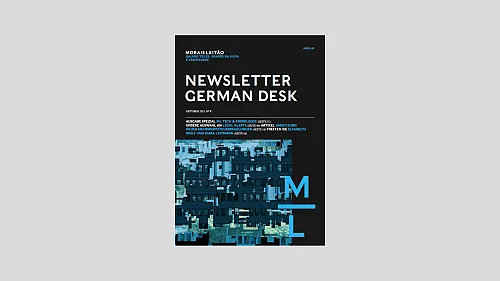The new Competition Act (Law n.° 19/2012) deals with infringements and sanctions in Chapter VII and with the exemption or reduction from fines (“Leniency”) in Chapter VIII.
As a preliminary point, the new law solves the previously existing shortcomings regarding the lack of legal basis for the Portuguese Competition Authority’s sanctioning of infringements to articles 101." e 102." of the Treaty on the Functioning of the European Union. Article 68.°, 1, b) now expressly foresees that those infringements amount to “an administrative offence punished with a fine”, which means that the Portuguese Competition Authority (PCA) is no longer limited to a mere finding of infringement but is also able to sanction it.
The remaining rules on infringements and sanctions do not bring about groundbreaking changes, however, some of the new rules are important to mention.
In article 69.°, the (non-exclusive) criteria for determining the fine is further detailed via the express reference to additional aspects such as the nature and the dimension of the affected market, the duration of the infringement, the economic situation of the undertaking concerned, previous fining decisions and the consideration (only) of those advantages enjoyed as a result of the infringement that can be identified. These are criteria which application already occurred, to a large extent, as a result of subsidiary legislation or as a result of the courts case law when reviewing the PCA’s fining decisions.
We are glad to see that, following the comments presented in the course of the public consultation occurred in late 2011, the final text includes the suggestion (n." 8 of article 69.") that future guidelines on the method for the setting of fines be adopted by the PCA. This is mostly welcomed, given the importance of the subject matter and the interest of the undertakings/individuals concerned in having the highest possible degree of certainty regarding potential fines. Still on this article, the maximum amount of the fine for undertakings is now calculated by reference to the turnover earned in the fiscal year immediately preceding the final fining decision of the PCA, a solution which contradicts the case-law of the Lisbon Court of Appeal (for whom the relevant year should be the year when the infringement came to an end). For individuals, the maximum permitted fine can now go up to 10 % of the annual income earned while working at the infringing undertaking, during the last full year of occurrence of the infringement.
In the calculation of the maximum fine applicable to an association of undertakings the relevant turnover is no longer limited to the aggregate annual turnover of the associated companies that have participated in the infringement but rather, it covers the aggregate turnover of [all] associated companies. This solution leads to an unfair result for those associations that cover a wide range of activities which are separable and distinct, whenever the associated companies/activities at stake in a given proceedings concern only a part of those activities.
Article 73.° introduces detailed rules regarding the responsibility of undertakings for administrative offences, however, this higher level of detail does not always correspond to a widening of the scope of responsibility for companies.
Hence, for infringements which result from the acts of an employee (who is not a member of the companies corporate bodies nor a companies’ representative or someone with authority to control the activity of the company) the new rule – which follows closely the provisions of the Penal Code in this respect – limits the companies responsibility to cases where the employees’ superiors have breach their duties of surveillance and control (and therefore, the mere requirement that the employee has acted on behalf or on account of the company or in the exercise of its duties does not seem to suffice, as it did under Law n.° 18/2003).
In this same article - n.° 8 - companies whose legal representatives where members of the directive bodies of an association of undertakings are held joint and severally liable in relation to the payment of the fine imposed upon the association. The joint and several liability can only be set aside if those members have opposed in writing to the decision that constitutes or serves as basis for the infringement.
On the statute of limitations, the new law modifies the maximum permissible period of suspension of the limitation period from 6 months to 3 years, which seems unjustifiably long, taking into account (inter alia) that a new specialized court is about to start operating. As a result of this new rule, the maximum limitation period for infringement proceedings can now go up to 10,5 year for the most serious offences. Taking in account, in addition to the above, that the limitation period is also suspended while judicial review of the final decision is pending, it can be concluded that the relevance of the statute of limitations is considerably undermined.
In relation to leniency, the new law revokes the previous leniency regime and the new rules on leniency are now dealt with in Law n.° 19/2012 (articles 75.° to 82.°). Significant changes are introduced, which bring the Portuguese leniency regime closer to the one in force at EU level.
The scope of the leniency regime is reduced and, as a result, only agreements or concerted practices between competitors which envisage the coordination of market behaviour or to influence relevant aspects of competition are eligible for a leniency request (and not any type of restrictive agreement or practice, be it horizontal or vertical, as was previously the case).
Full immunity is still limited to “first in” situations, however, it is no longer required that the PCA has not yet initiated an investigation. Therefore, full immunity will still be possible if an investigation is already going on, provided that the leniency applicant is the first to provide the information and elements necessary for the PCA to (i) conduct an inspection or (ii) to verify that an infringement exists (together with other conduct requirements imposed upon all applicants).
Fine reductions are possible for all companies that render information and proof of significant added value and it is this criteria (and not the number of companies that have already applied) that determines whether or not a reduction is available (in addition to the fulfilment of the conduct requirements referred to above). Lastly, the law qualifies as confidentiality the documents and information presented in the context of a leniency request (and the respective formal request and oral statements) and introduces significant limitations on the access to leniency documents by the company concerned in the investigation as well as on the access by third parties.



